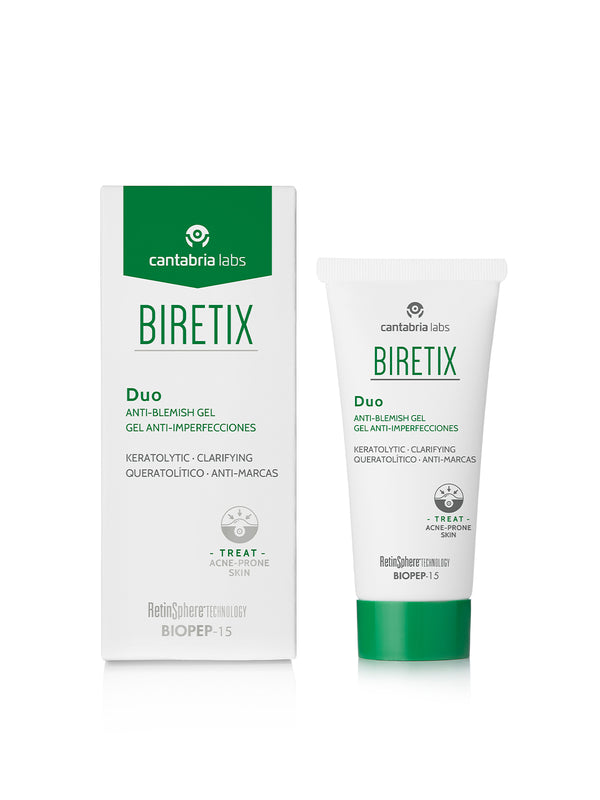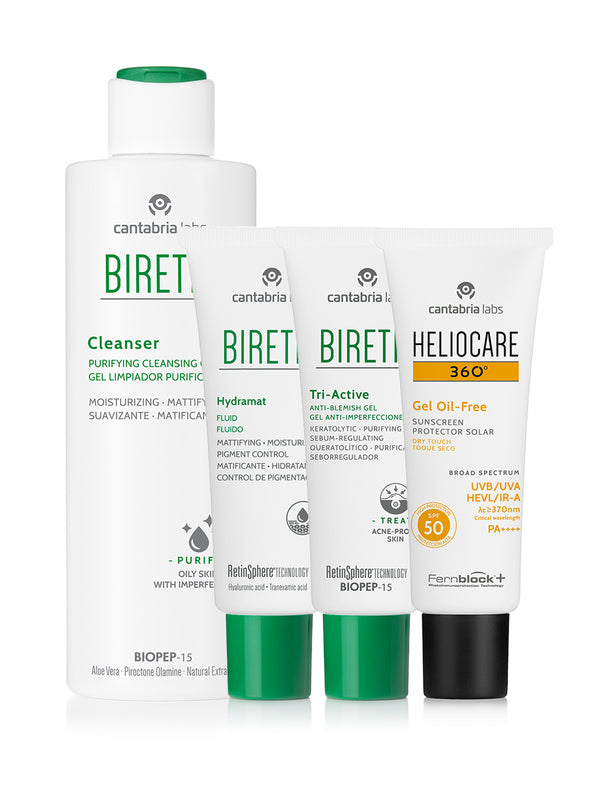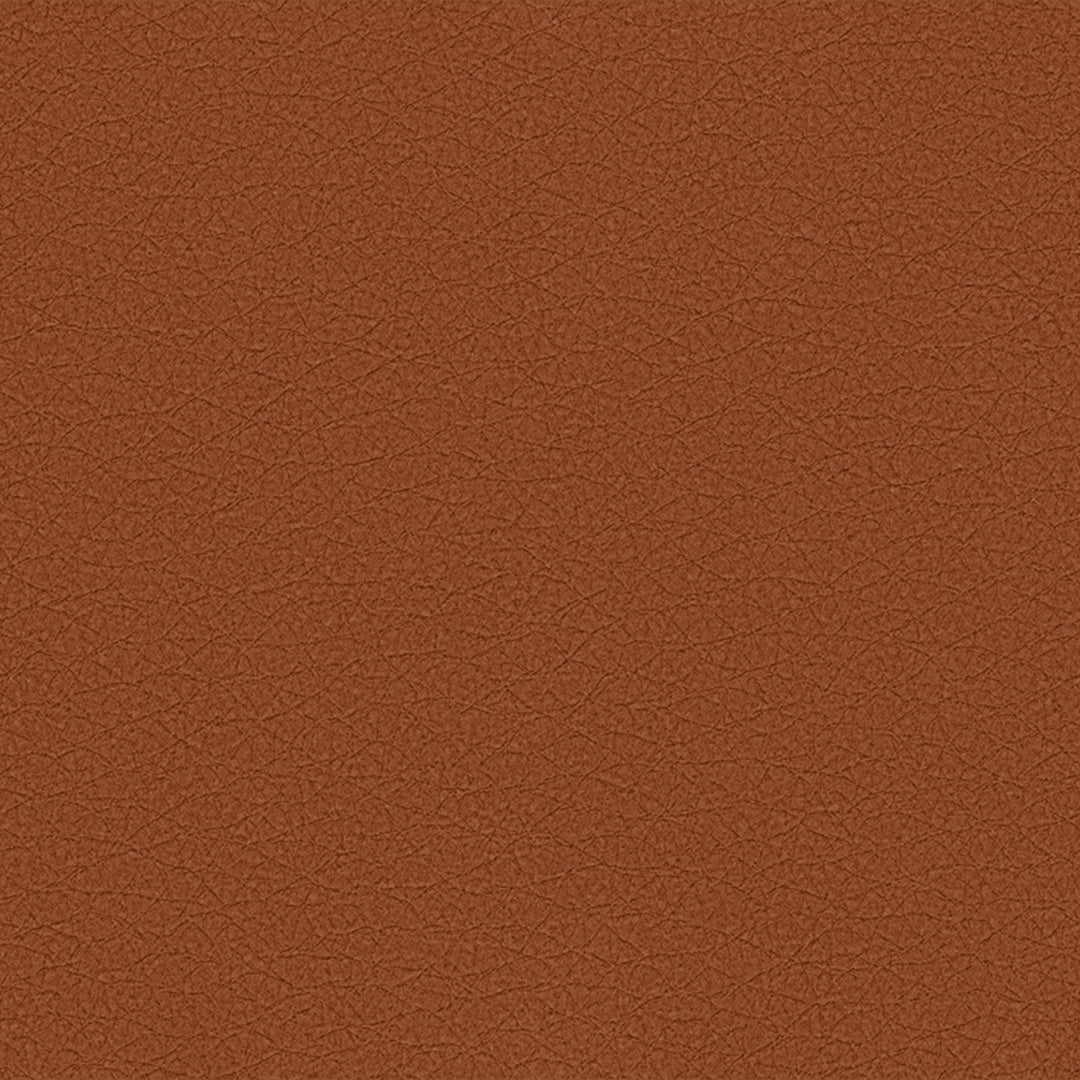What ingredients help spot-prone skin?
Many people suffer with spot-prone skin, varying in severity from the odd spot now and again, to frequent angry breakouts. Spots are not exclusive to certain groups; they can affect men and women of all ages. However, acne is a common issue amongst teenagers and young adults, with around 95% people from ages 11 to 301 suffering with acne to some extent.
So what is the cause of spots? And what ingredients should we look for to combat them?
What causes spots?
Spots are caused by a build-up of sebum, dead skin cells and bacteria. This blocks the pores, causing the surrounding skin to swell.
Some skin types are more prone to spots. People with oily skin are likely to experience more breakouts, because their sebaceous glands produce more sebum. Since our sebaceous glands are sensitive to hormones, puberty is a common time to experience breakouts. Other moments in life where our hormones shift may also see more blemishes, such as pregnancy and the menopause.
Spots can also be caused or aggravated by external aggressors. Pollution aggravates the skin and can worsen existing skin conditions, including acne. Cigarette smoke also causes inflammation, and has been found to have a harmful effect on our skin cell DNA3. We might also notice a worsened skin condition when it’s hot, because we sweat more and produce more oil, further clogging our pores.
While it’s normal to get spots, it’s not something we have to put up with. And if you’re very concerned about your spots and they are impacting your quality of life, we recommend speaking with your GP.
What are the best ingredients for spot-prone skin?
It’s impossible to have perfect skin all of the time, but there are ingredients we can look for in our skincare products which can help to promote a brighter, healthier, blemish-free complexion. Some of the best ingredients for spot-prone skin include:
Salicylic acid
Salicylic acid is a natural chemical found in plants. It is used to treat mild to moderate cases of acne2. When salicylic acid is applied to the skin, it helps to encourage the shedding of dead skin cells, as well as reducing inflammation and redness. This in turn helps to reduce the formation of new spots and speeds up the healing of existing blemishes.
AHAs
Alpha-hydroxy acids, or AHAs, are organic acids including glycolic, lactic, malic, tartaric and citric. They can be very effective in treating spot-prone skin, removing dead skin cells and ameliorating the appearance of acne3. Some of the benefits of AHAs include promoting collagen production, improving discolouration, brightening the complexion and encouraging product absorption. They are also thought to reduce the size of pores.
Retinoids
Retinoids have been used in topical acne treatments since 19714. This was in the form of tretinoin, which prevents the clogging of pores and helps to prevent acne scarring. In using this retinoid, skin care specialists and their patients soon noticed the anti-ageing benefits, including faster skin cell turnover, improved collagen production, improved skin tone and a reduction in fine lines and wrinkles. Nowadays, retinoids for acne treatment can be prescribed or are available as retinol in over-the-counter formulations. Retinol is a medium-strength retinoid and it’s a fantastic ingredient to look out for when choosing products for spot-prone skin.
Peptides
Peptides are amino acids that naturally occur in the skin. They are very important in collagen production, as collagen is made up of three polypeptide chains5. Adding peptides into your skincare routine will therefore encourage more collagen production. Other benefits include easing inflammation and unifying skin tone. In terms of treating acne and breakouts, antimicrobial peptides help to kill spot-causing bacteria.
Niacinamide
Niacinamide is a type of vitamin B-3, which is an essential nutrient protecting against kidney and brain disorders6. It is also highly beneficial to the skin; niacinamide helps to reduce pore size, improves hyperpigmentation and locks in moisture for an improved skin barrier against external aggressors. This powerhouse ingredient also has anti-inflammatory properties to reduce redness and inflammation, plus it works to regulate the amount of oil the skin produces7. Both these elements are crucial when treating spot-prone skin.
Vitamin C
Vitamin C is a powerful anti-oxidant which plays a vital role in skin production, protection and healing. Its effectiveness in fighting free radical damage is well known, but vitamin C can also help to control and improve the look of spot-prone skin. Its anti-inflammatory properties improve sebum production within the skin8, and by encouraging better collagen production, vitamin C also helps to accelerate the healing of acne and reduces scarring.
Other ways to help spot-prone skin
Along with considering the types of products you use, you should also think about the way you use them. Avoid washing your face too often, which can dry out your skin. When you wash your face, don’t scrub too hard. Try to avoid squeezing any spots, too. Though it might offer some relief, squeezing can force congestion deeper into the skin, which leads to more inflammation. Squeezing spots may also cause them to scar. We also recommend against trying new and different treatments every week, as this can irritate your skin and lead to more breakouts.9 Of course, taking care of your skin goes beyond your skincare. There are many lifestyle factors that can make a difference, especially when combined with a strong skin care regime.
These include:
- Drinking plenty of water
- Eating plenty of fruit, vegetables and healthy fats
- Minimising alcohol consumption
- Getting enough sleep
- Avoiding smoking
- Lowering your stress levels
Please remember, if your spots have become uncontrollable and are impacting your day to day life, it’s important that you visit your GP.
Shop our spot-prone skin bundles
From the same skincare geniuses behind Heliocare 360°, Biretix is a clinically-proven range that combines advanced technologies to target every stage of the spot cycle. Featuring patented RetinSphere® technology and BIOPEP-15, Biretix works to reduce inflammation, support the healing process, and help to prevent future breakouts, all with minimal irritation.
Discover the Biretix Essentials bundle, which includes the Biretix Duo active serum and our best-selling Heliocare 360° Oil Free Gel. Or choose the Biretix Regime bundle, which features an additional purifying cleanser.
In the article

- Clarifying
- Anti-microbial
- Oil-regulating
- Suitable for sensitive skin

- Straightforward regime for spot prone skin
- Purifies the skin
- Reduces blemishes without irritation
- Protects the skin
References:
1 NHS Choices (2019). Overview - Acne. [online] NHS. Available at: https://www.nhs.uk/conditions/acne/.
2 WebMD (2019). Drugs & Medications. [online] Webmd.com. Available at: https://www.webmd.com/drugs/2/drug-18-193/salicylic-acid-topical/salicylic-acid-for-acne-topical/details.
3 Tang, S.-C. and Yang, J.-H. (2018). Dual Effects of Alpha-Hydroxy Acids on the Skin. Molecules : A Journal of Synthetic Chemistry and Natural Product Chemistry, [online] 23(4). doi:10.3390/molecules23040863.
4 www.aad.org. (n.d.). Retinoid or retinol? [online] Available at: https://www.aad.org/public/everyday-care/skin-care-secrets/anti-aging/retinoid-retinol [Accessed 23 Jun. 2022].
5 Healthline. (2020). Peptides for Skin: Benefits, What to Look for & Side Effects. [online] Available at: https://www.healthline.com/health/peptides-for-skin#benefits.
6 WebMD. (n.d.). What to Know About Niacinamide Skin Care. [online] Available at: https://www.webmd.com/beauty/what-to-know-about-niacinamide-skin-care.
7 acne support. (n.d.). Niacinamide. [online] Available at: https://www.acnesupport.org.uk/treatment/niacinamid/.
8 MD, N. and Patel, P. (2021). Why is topical vitamin C important for skin health? - Harvard Health. [online] Harvard Health. Available at: https://www.health.harvard.edu/blog/why-is-topical-vitamin-c-important-for-skin-health-202111102635.
9 www.aad.org. (n.d.). 10 skin care habits that can worsen acne. [online] Available at: https://www.aad.org/public/diseases/acne/skin-care/habits-stop.







